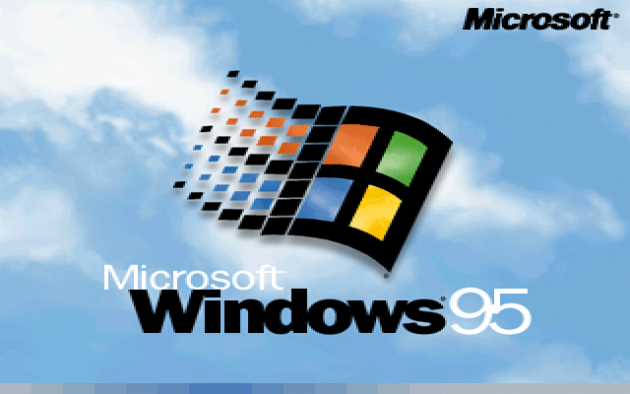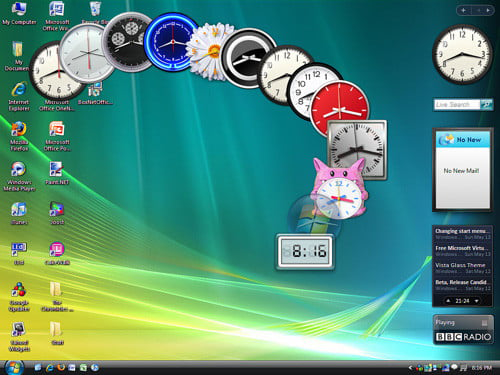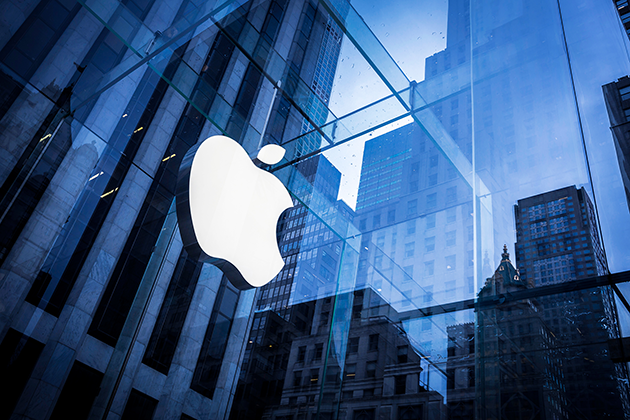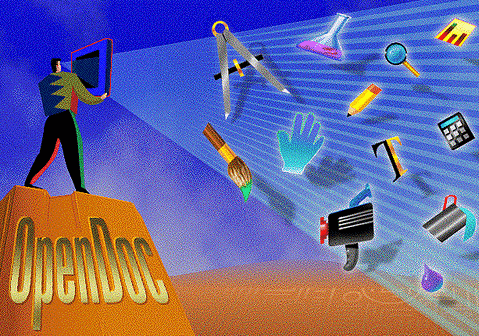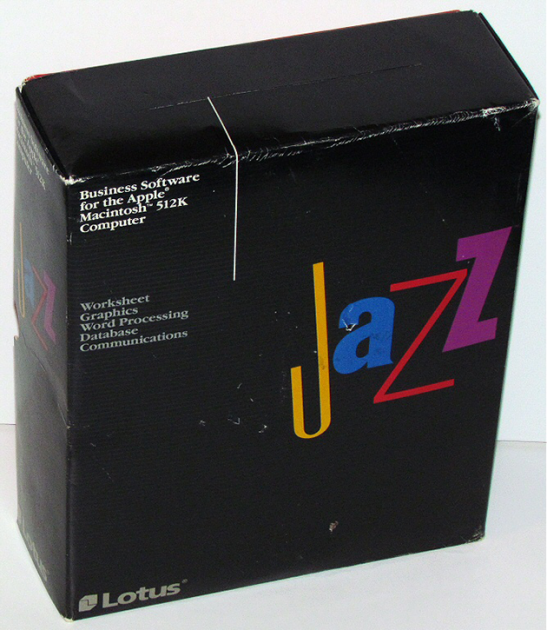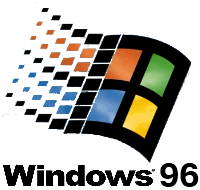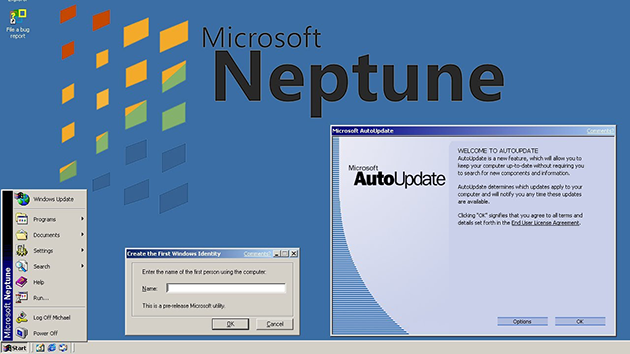10 Failed Programs That Noone Wants To Remember
Let's be honest, how many times did you format your Windows Me installation in the past? And, really, wasn’t iTunes Ping just plain useless? Here are the most popular but failed software products that you might have tried, as well as certain efforts of tech giants that never made it to the public.
Microsoft
There is a well-known legend which claims that the quality of Microsoft's different Windows versions corresponds to the sinusoidal function. Of course, Windows 95 has been the most popular operating system of its time, since several innovations were incorporated in it. Thus, one cannot consider that particular OS to be a complete failure.
However, the reasons why Windows 95 is categorized under the company's failed operating systems are issues with various applications, as well as the fact that prior to its release, one version of the operating system was withdrawn before it was even released.
Similarly, Windows 8 is not completely a failed product. In addition to its miserable interface, it brought various improvements.
Windows Me
Windows ME (Millennium Edition) was a complete wreck. It was released in September 2000, when the word Millennium was quite fashionable. It is expected, however, to make a comeback in 2999.
This version of Windows used to one of the most promising operating systems, from the aspect of advertisement. For the first time, Media Player and Movie Maker were included as pre-installed applications. Additionally, the operating system introduced the very important feature of System Restore.
So far so good.
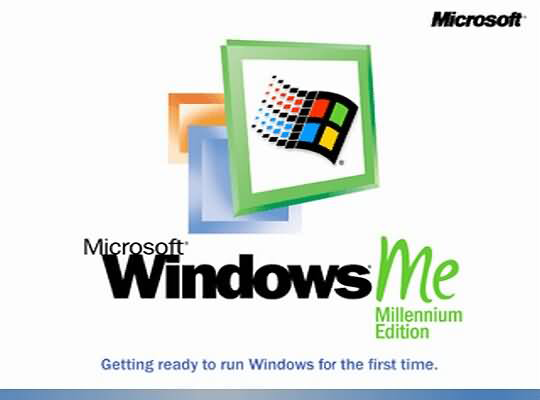
However, in everyday use, Windows ME used to crash extremely easily, and they required a reboot to work properly again. And this was not due to the user performing some faulty action; it could happen just by moving the mouse (and in many cases even without doing that).
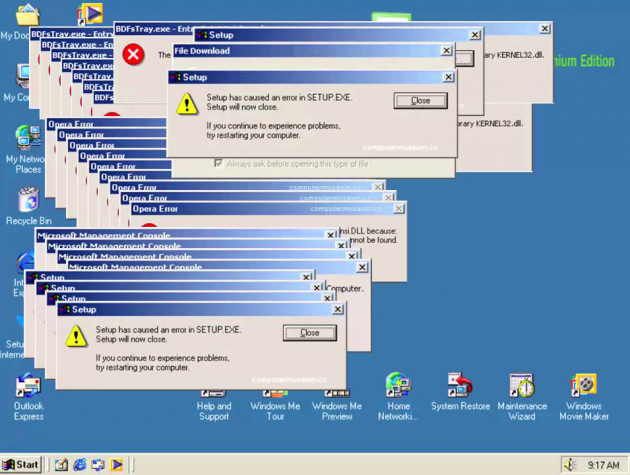
The several bugs, the absence of the Command Line, and the unfinished character of the release (apparently due to Microsoft's rush) led to one of the most failed operating systems of all time.
Windows ME was abandoned a year later, and its replacement was Windows XP. The support for Windows ME ended officially in December 2006, after receiving only three years of extensive support. Even Windows Vista received a full decade of extensive support.
Windows Vista
Windows XP was a stormy success for Microsoft. As a result, most users expected Windows Vista to have similar luck.
It was the beginning of 2007 when the new OS was introduced. It brought a completely redesigned graphic environment, and a large set of new features, one of them being desktop gadgets. But unlike any expectation, Windows Vista could not satisfy most opinions.
With its source code containing ten million lines more than the latest version of Windows XP, the system became slow, with the boot times requiring urgent patience. Of course, nobody wanted a new computer that slower than the old one, so Vista never managed to dominate the market. This also affected the compatible software and hardware, as companies would not invest in any of the failed products.
Even the desktop gadgets proved to be a complete failure, since they suffered from serious vulnerabilities, and Microsoft discontinued their development.
If your computer still runs Windows Vista, it's best to upgrade, possibly by installing Windows 10, for free. As of April 11, 2017, support for Windows Vista ended officially.
Bob
Windows ME and Vista were considered bad Windows versions because they did not satisfy Microsoft’s customers. However, using the same criterion, Bob shouldn’t be considered a failed product, but it was voted as the most failed program of the 1990s.
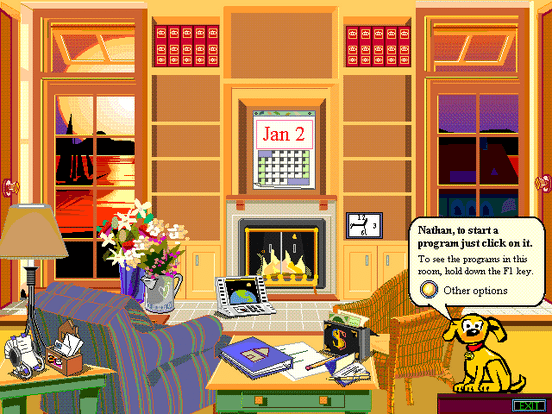
Back in 1995, Microsoft decided to create a program that would diversify the operating system’s environment. The concept is this: there is a house that symbolizes the operating system, and it is divided into rooms which correspond to programs. In addition to this, there is a... dog, named Rover.
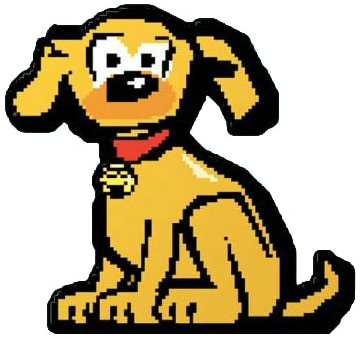
Bob was harshly criticized, despite its groundbreaking idea that was supposed to make the computer more user-friendly. In early 1996, Microsoft (through Steve Ballmer) recognized Bob as one of its failed programs, and resigned from the effort. There were rumors from time to time that the program was about to make a comeback, but these were never confirmed.
Fun Fact: Did you know that the popular Comic Sans font that is used ridiculously often was developed for Bob?
Apple
Apple is the company that many of us love to hate. This habit stems mainly from the increased prices of its devices. However, Apple is also involved in creating applications.
Let's take a look at the two cases which gave the company a place on the list of failed programs.
iTunes Ping
In 2010, social media networks, and mainly Facebook, were at their peak. Steve Jobs also wanted to take advantage of this excitement. In fact, he had stated that iTunes Ping it’s like “Facebook and Twitter meet iTunes. But it’s not Facebook, it’s not Twitter- it’s a social network about music”.
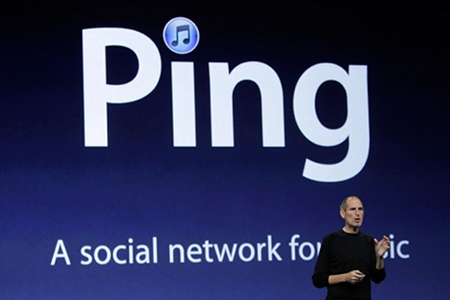
Ping was incorporated in iTunes, and its target group was exclusively music lovers. The service allowed its users to follow their favorite artists, view posts by famous artists (and not only), and learn news about concerts.
Ping was released in September 2010, and stayed in the market for just two years. The Facebook cooperation issues, the creation of forged accounts with the name of various stars, as well as spam, led to the disappointment of its original supporters.
On September 30, 2012, the iTunes version stopped supporting it. Ping was definitely ranked in Apple's failed programs.
OpenDoc
Despite the similarity of its name with the popular OpenOffice suite, this particular application has nothing to do with it.
Back in the 1990s, with home computers making their first steps, Apple made one of the oldest and most failed programs. OpenDoc was available for Windows and Mac, and was released in 1997. Initially, it seemed to attract many fans. However, it wasn’t long before issues started to appear.
The first problem was RAM consumption. Back in 1997, the average computer wasn’t equipped with more than 256 MB of RAM, just like today's $50 smartphones.
Another problem was the incompatibility that existed between OpenDoc and Microsoft Office, and even incompatibility between Mac computers and regular PCs that were using OpenDoc.
These problems, coupled with the disappointment for the product and profit loss by Apple, killed OpenDoc.
Google Lively
In this particular project, Google tried to enter the world of 3D, but failed to do so.
Google Lively, a web-based application, broke all records after becoming a failed program in less than 5 months. According to what we experienced in this short time frame, Google Lively was essentially a chat room, in which you used an avatar in a three-dimensional space.
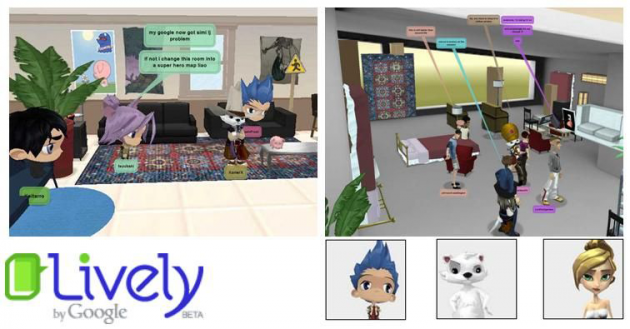
The idea was pretty close to Windows Bob in touring rooms, with clearly better graphics.
However, by the end of 2008 Google stopped the development of the application because it was considered saturated and weak to support new content.
Lotus Jazz
Back in 1985, one of the first failed programs was released, by Lotus. Lotus is an IBM subsidiary that has been engaged in software development over the past 35 years.
However, very few people know the programs Lotus developed in the past, and even fewer remember the Lotus Jazz office suite.
This platform was worth about $600, while it ran exclusively on the Macintosh 512. Its price, in combination with the trouble of switching between three different floppy disks, led into its premature abandoning.
NetScape 6
Nowadays there are several browsers available. In the 1990s, however, the alternatives for each user were two: Internet Explorer and Netscape Navigator. We did not even think of including the former in this guide, because its success is a given.
As for the second one, we suspect that its merging with FireFox around 2008 is mainly due to the failure of NetScape 6.
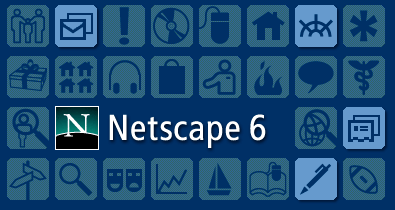
Around 1997, Microsoft released Internet Explorer 4, which received very good reviews from the international community as the company's best browser. And while everyone was expecting NetScape browser, it took the company three years to release it.
Unfortunately though, this browser was completely dysfunctional. It had several bugs, many of which were never fixed, and along with its difficulty running smoothly even on middle-class computers of the time, NetScape 6 was quickly transformed into a failed program.
After some modest attempts to recover, the company that once competed with Microsoft was gone missing.
Products that were never released
More often than not, a good idea is not enough to create a quality and acceptable product. This results in a small piece of software that never makes it into the market, and retiring even before it is released.
We do not know whether these efforts would eventually lead to failed programs, and the truth is that we will never know it.
Windows 96 or Nashville
What you probably do not know is that all Windows versions also have a codename that no one ever uses. For example, Windows 95 was called Cairo, and Windows 98 was called Memphis. In this article you will find a detailed list of all codenames.
However, between these two operating systems there was one more OS that we never saw, nor will we see: Windows 96.
Microsoft's goal was to be released in 1996, but the company did not consider the upcoming changes worth for a new release. To add them, however, the company released Windows 95 OSR2, as a supplement of the previous version.
Windows Neptune
The one and only build of Windows Neptune that was released in late '99 left the beta users completely disappointed.
The user interface for Windows ME, as well as the strange system management logic, led to the cancellation of the project so that it never went through the list of failed programs. However, note that Windows 2000, which was released a few weeks later was ready and was not influenced by Neptune.
If you have any thoughts, don't hesitate to share them with us by posting in the comments section below!


